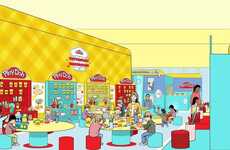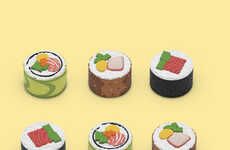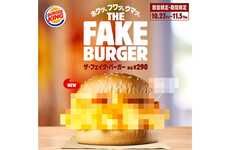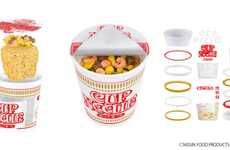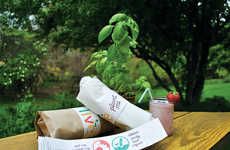
The Japanese Plastic Food Industry is a Growing Art Form
Corinne Guirgis — May 20, 2011 — Marketing
References: eatbma.blogspot & odditycentral
The Japanese plastic food industry is revolutionizing the restaurant-going experience one plastic food display at a time. With the country's growing industry, the days of little printed menu images and asking the waiter about every ingredient in a given dish may be coming to an end! Imagine being presented with a real-life replica of every dish you were interested in eating that despite being made entirely from plastic, visually captures every element of the dish from ingredients to presentation.
Ryuzo is Japan's top manufacturer of fake food displays and estimates show it produces billions of Yen every year!
According to Oddity Central, Japanese fake food models can be traced back to 1917 to attract more customers to restaurants by placing them in a glass casing. Fake food displays have become a lucrative business as the displays do just that -- attract more customers who can't resist the look of some of these mouth-watering dishes!
Ryuzo is Japan's top manufacturer of fake food displays and estimates show it produces billions of Yen every year!
According to Oddity Central, Japanese fake food models can be traced back to 1917 to attract more customers to restaurants by placing them in a glass casing. Fake food displays have become a lucrative business as the displays do just that -- attract more customers who can't resist the look of some of these mouth-watering dishes!
Trend Themes
1. Revolutionizing the Restaurant Experience - The Japanese plastic food industry is transforming the way people choose and order food in restaurants by using life-like replicas made from plastic.
2. Growing Art Form - The Japanese plastic food industry is rapidly becoming a form of art, as manufacturers create visually captivating replicas that accurately represent dishes' ingredients and presentation.
3. Lucrative Business Opportunity - The production of fake food displays has become a profitable industry in Japan, attracting more customers to restaurants through enticing visual representations of the dishes.
Industry Implications
1. Food Service Industry - The food service industry can benefit from incorporating realistic plastic food displays in their establishments, enhancing the dining experience and attracting more customers.
2. Manufacturing Industry - The manufacturing industry has an opportunity to enter the plastic food industry by producing high-quality replicas, meeting the growing demand for visually appealing food displays.
3. Art and Design Industry - The art and design industry can explore the Japanese plastic food industry as a unique art form, creating visually stunning replicas that blur the lines between art and food.
5.3
Score
Popularity
Activity
Freshness



